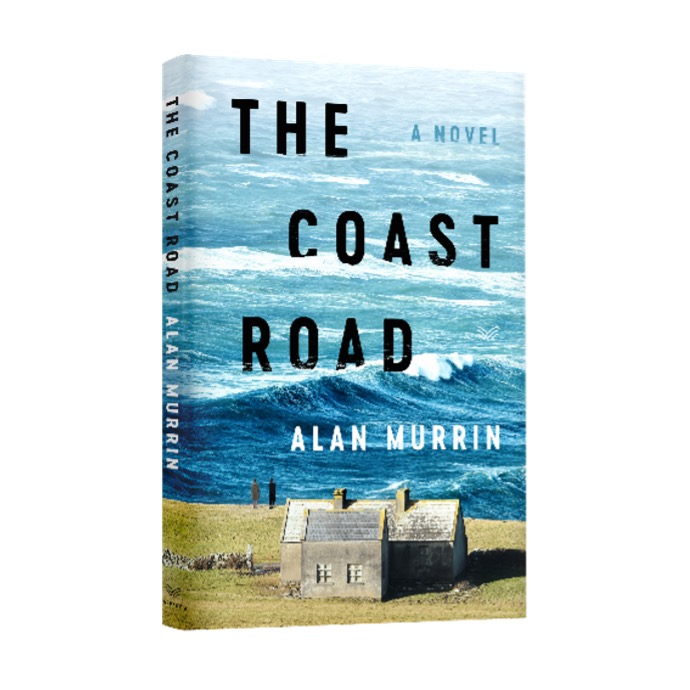In 1994, divorce was illegal in Ireland. Alan Murrin’s “The Coast Road” is set in a small town where the law, gossip, and societal pressures trap women in unhappy marriages.
Colette Crowley, a poet who fled to Dublin to be with a married man, returns to town, disrupting the delicate equilibrium of several relationships. When her husband cuts her off financially and denies her access to her children, she starts teaching a poetry course. This class becomes a lifeline for reluctant housewife Izzy Keaveney, offering her a temporary escape from her unfulfilling marriage. As the bond between the two women deepens, Izzy is driven to help Colette reunite with her children through secret meetings. Regrettably, this friendship will end in tragedy for one of them.
Murrin writes with beauty and honesty, creating authentic and complex characters. He draws women with whom you can empathize as you mourn their lack of agency against their bullying husbands. The characters pull you through the story as they struggle under the weight of their religious and patriarchal society.
Lyrical, emotional, and page-turning, “The Coast Road” by Alan Murrin is for readers who love messy relationships, small-town scandals, impactful characters, and touches of humor in an otherwise dark story.
Thank you to NetGalley and HarperVia for sending me an advanced copy of this book in exchange for an honest review.
For writers looking to learn more about writing from this novel, Murrin has much to offer, but his use of dialogue and action beats is worthy of special mention. When writing dialogue, it should advance the plot, reveal character/emotionality, and/or create tension.
Reveal Character
“‘Hello, love,’ she said and brandished a smile at him.”
In this quote, the character ‘brandished’ a smile in the action beat, making the reader aware that the character is insincere. Murrin is giving insight into the character’s true feelings even as she puts on the show of being a loving wife.
Reveal Emotion and Advance the Plot
“‘How are your boys?’ Izzy asked.
It was like someone had walked up behind her and laid two heavy hands on her shoulders. She lifted her head and tried to focus on Izzy.”
Murrin uses a simile in the action beat to show the emotional impact of Izzy’s question on Colette. A seemingly innocuous question is given emotional weight and reveals Colette’s pain. It also advances the plot by spurring Colette to ask Izzy for a favor.
Create Tension
“‘Oh, and when did you get so fond of poetry, Donal –ha? Get rid of her.’
‘We need that money.’
‘I know what you need,’ she said.
And for just a moment her husband looked like a little boy, as fear and confusion and panic passed across his face like shadows, and disappeared.”
In this exchange, we see how the two characters communicate indirectly. The tension is built by the wife’s quick retort and her husband’s physical reaction in the action beat.
A Note on Writing
Murrin also throws us this beautiful line about writing. A reminder that writing is hard work and there are days when it feels impossible, but the key is to keep working.
“Oh, as well as can be expected. Work is work. People think that when you’re a writer you love writing so much you skip to the desk every morning, but there can be days when it’s a struggle, when you’d rather do anything else.“
- Harlem Rhapsody by Victoria Christopher Murray - December 4, 2025
- “The Song of the Blue Bottle Tree” by India Hayford - May 15, 2025
- “Soft Burial” by Fang Fang - April 24, 2025
Sign up to our newsletter to receive new articles and events.




